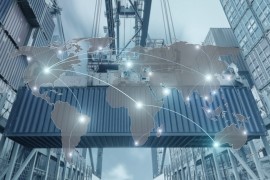
- Economies worldwide are becoming more interconnected, requiring the study of politics and social dynamics to make informed decisions.
- Third-world countries are significant suppliers of natural resources, and their policies can significantly impact global economies.
- Understanding the political landscape of emerging markets is vital to predicting their potential risks and opportunities.
- Economic policies must consider political and social factors, such as wealth distribution and resource allocation, to achieve long-term success.
Economists have long been recognized as critical thinkers in understanding the complexities of human societies and the economic systems that govern them. They have always been crucial in researching, analyzing, and interpreting economic data worldwide.
Economists must have the technical, quantitative, and analytical skills to comprehend complex economic theories and models. However, a broader understanding of politics and social dynamics is also necessary to make informed decisions. This blog post will discuss why it is vital for economists to study third-world politics and their impact on global economies.

Economic Interdependence
Economies across the world are becoming more interconnected as globalization continues. This interdependence means that events in one country can have significant economic consequences worldwide.
Natural Resources
Developing and third-world countries are significant suppliers of natural resources, and their policies around resource extraction and distribution can considerably impact global economies. Therefore, studying the political systems of these countries is vital to understanding their resource policies and potential economic influence.
Economic Agreements
In addition, regional economic agreements such as the European Union create economic interdependence between countries in different regions. These agreements enable free trade and encourage cooperation between members of the union. Understanding these complex relationships can help to explain how decisions made in one country affect other nations, often on a global scale.
Emerging Markets
The majority of emerging markets are based in third-world countries. These markets present significant opportunities for investors but are also fraught with risks. An economist must understand the political landscape of a country to predict how its policies could impact its growing economy. Understanding the historical political context and the potential challenges a country could face can help investors make informed decisions.
Market Volatility
Emerging markets also face the risk of market volatility, currency fluctuations, and higher-than-average inflation rates. Companies in these countries often lack transparency and suffer from weak corporate governance structures. This makes investing in an emerging market a gamble.
Social Stability
Social stability plays a significant role in economic development. A country that cannot maintain law and order and provide basic services to its citizens would have difficulty attracting foreign investment or promoting economic growth.
Political Drivers
An economist must understand the political drivers of social stability to make sound policy recommendations. The political climate in a country must be considered while designing economic policies, as political instability can lead to gross financial mismanagement or economic collapse.
Study
To better understand third-world politics and its effect on a country’s economy, economists should consider getting a BA Pol Sci degree. Taking the course gives them an idea about the politics of third-world countries and how it affects a country’s economy.
Distribution of Wealth
The distribution of wealth in a country can have significant long-term economic implications. Researchers have found that countries with high levels of wealth inequality tend to grow more slowly than those with more equitable wealth distribution. Understanding the causes of wealth distribution is, therefore, crucial in determining the outcomes of economic policies.
Taxation
Taxation is an essential tool for influencing the distribution of wealth. In some countries, progressive taxes reduce inequality by taking a larger percentage of income from wealthy individuals and corporations.
Redistribute Resources
Government spending can also redistribute resources and help close gaps between rich and poor. Social safety nets such as unemployment benefits, food stamps, and public housing are examples of this type of redistribution.

Deciding Resource Allocation
Several development projects undertaken by governments within third-world countries have faced significant resistance from the local community. Projects may significantly negatively impact the local environment and disrupt local livelihood systems. When economists study political systems, they can understand the complex decisions required to allocate resources and suggest measures to improve community engagement and cooperation.
Advise Governments
In addition, economists can advise governments on the best ways to allocate resources within the budget. The right resource distribution strategy is critical for achieving economic success and stability. For instance, a government may have limited funds available. However, it must still manage to provide essential services such as health care, education, and infrastructure.
No matter how robust or accurate, an economic model cannot account for all the complexities of a society’s goals and values. When designing and implementing economic policies, political and social factors cannot be ignored. Thus, economists need to study the third-world political systems’ nuances and their impact on economic development around the world. Understanding these social factors will help economists make sound decisions that consider the broader long-term implications of economic policies. By studying third-world political systems, economists will be better equipped to advise policymakers, investors, and industry leaders on how to make informed decisions that benefit societies as a whole.